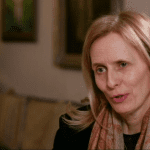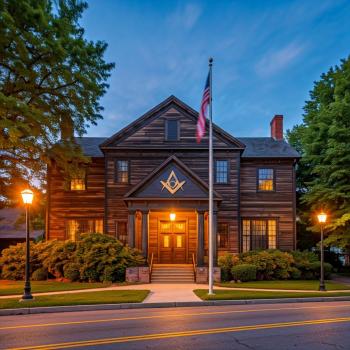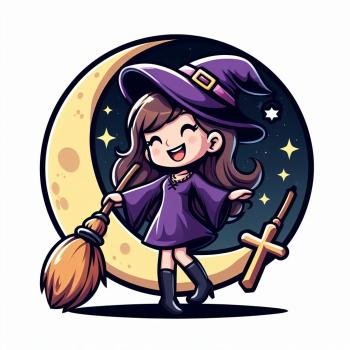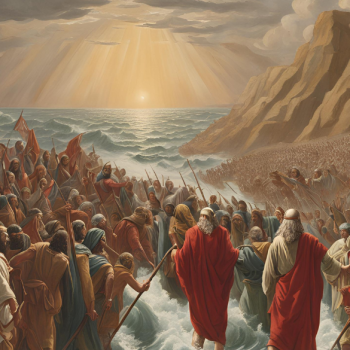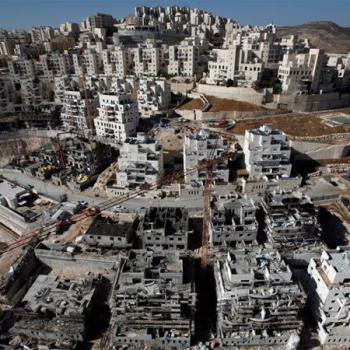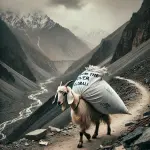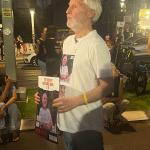This week I went to see Sir Tom Stoppard’s new play Leopoldstadt, which opened in London’s West End earlier this month. It’s a big play in every sense. Its large cast plays an extended Viennese family across three generations and half a century of deteriorating Jewish history. It’s profoundly moving, especially in its final scenes, and shows the impossibility of escaping the consequences of Jewish identity, however hard you might try.
But what struck me most was Stoppard’s treatment of Zionism. Or more precisely, his lack of treatment and seeming lack of interest in the idea that has come to dominate Jewish self-understanding and transform debates and arguments about antisemitism.
Jewish 20th century history is so often presented as one long justification for the project of Jewish national renewal. It’s a narrative which today dominates mainstream Jewish community life and deeply influences political attitudes towards Israel by Western countries. So it was curious to see such a major artistic telling of Jewish experience leaving Zionism offstage. I expected to see it waiting in the wings as a potential redemptive finale or at the very least an answer to the human costs of being Jewish. Instead, Stoppard chooses his own tragic reading of the Jewish predicament, keeping his characters locked within their own family tragedy.
Morality and ethics
Tom Stoppard is rightly regarded as one of Britain’s greatest living playwrights. I first discovered his work at school in the early 1980s when we studied his television play Professional Foul which contrasted Czech political dissidents with ethically detached, self-serving academic philosophers from the West. Despite the subject matter, Professional Foul is full of comic moments as well as footballing metaphors. My English teacher took us to see what was then Stoppard’s latest West End stage play The Real Thing so we could see in a theatre what the adjective ‘Stoppardian’ really meant. Around the same time, I read his earlier plays Jumpers, Travesties, and Night and Day and I fell in love with his word play, his playfulness with big ideas, and the stage comedy he creates through misunderstandings and ambiguity. Time and again he’s returned to themes of morality and ethics and how personal relationships and circumstances intersect with politics, history and the wider world. Leopoldstadt is certainly Stoppardian, but the comedy is less frequent and the darkness far greater.
Last play
Stoppard is now 82 and believes Leopoldstadt may well be his last play.
As well as being his last, it’s also his first Jewish themed play and the closest in subject matter to his own family story.
Tom Stoppard was born Tomas Straussler in Zlin in the former Czechoslovakia in 1936. He recently told John Wilson on the BBC arts programme Front Row how his parents had fled the Nazis to Singapore and after his father died his mother had married a British army officer called Stoppard. Tomas became Tom, growing up in England and learning little or nothing about Judaism or his family history or what became of his parents’ relatives.
“I once asked my mother to write down what she remembered and she said ‘wrongly or rightly, I decided to draw a line and not look back’…so I grew up as an English schoolboy…and colluded with my other identity”.
It wasn’t until the early 90s, after he made contact with a distant cousin, that Stoppard began to learn about his wider family. He discovered that all four of grandparents and all of his mother’s sisters had been murdered in the Holocaust. It was 2017 before he began sketching out ideas for a play that would draw on the predicament of Jewish existence in the first half of the 20th century. He told the BBC that his play was not in any way a reaction to the Labour/antisemitism rows which have dominated media reporting of the Jewish community in the last few years.
Vienna
Despite its origins, Leopoldstadt isn’t strictly autobiographical. It’s set in Vienna and follows the fortunes of a prosperous, highly assimilated and intermarried extended Jewish family from 1899 to 1955. In the opening scene when we first meet the Merz and Jakobovicz clans, the children are dressing the family Christmas tree in an opulent apartment with servants on hand. It’s a perfect illustration of the religiously ambiguous, multi-dimensional identity that’s been created in just a few decades following the Jewish emancipation in the Austro-Hungarian Empire. The family is wealthy, privileged and highly cultured. As Hermann Mertz says:
“My grandfather wore a caftan, my father went to the opera in a top hat, and I have the singers to dinner…”.
Hermann has married Gretl, a Catholic, and he’s commissioned Gutav Klimt (the real life Viennese artist) to paint her portrait. Meanwhile, their son, Jacob, is both baptised and circumcised. We see young Jacob attempting to top the Christmas tree with a Star of David before having his mistake pointed out by his Jewish grandmother.
Promised Land
In was in this same cultural environment that Theodor Herzl published his Zionist manifesto Der Judenstaat in 1896, and a copy is on hand in the Merz family apartment. However, Hermann describes it as “idiocy” and is literally putting his money on Culture as the route to Jewish acceptance:
“When we make money, that’s what the money is for, to put us at the beating heart of Viennese culture. This is the Promised Land, and not because it’s some place where my ancestors came from. We’re Austrians now. Austrians of Jewish descent!”
Hermann’s brother-in-law, Ludwig, no Zionist either, points out that it’s the antisemites of Vienna that are the most enthusiastic supporters of Herzl’s pamphlet: “A State for the Jews? Good idea. Get them out of here!”. However, Ludwig does recount a visit to his family in Galicia (Eastern Europe) where he observed (derogatorily) that Herzl’s book was “going around like an infection”. It’s “ordinary Jews” says Ludwig, that really understand what antisemitism means. Hermann remains unconvinced. He doesn’t buy the story of perennial Jewish catastrophe: “…centuries don’t come round again like seasons.” The humbler and persecuted Jewish masses living in the East are never referred to again throughout the performance.
Inevitably, there is much dramatic irony to be felt by anyone watching this play. The characters’ comment on their past and their confidence in the future but we the audience know what’s in store for this overly optimistic generation.
No advocates for Zionism
As the story progresses and we see the children of 1899 grow to be adults, every possible Jewish route to integration, acceptance and respect is tried out – apart from Zionism. The Jewish nationalism proposed by Herzl finds no advocates or champions within the large family of grandparents, siblings and cousins across three generations. Intermarriage, cultural patronage, Hapsburg patriotism, psychoanalysis and socialism are all explored, along with their limited success or ultimate failure. Ludwig is a university mathematician who seeks truth and comfort in numbers. His games of cat’s cradle with the children become a metaphor for the Jewish condition as the string turns in to multiple patterns and changing shapes:
“Each state came out of the previous one. So there is order underneath. Mathematical order! But how can we discover it?”
Meanwhile, whenever Zionism crops up in conversation it’s knocked back and mocked. In a scene set in 1924, Jacob Merz, now a wounded First World War veteran, chides his cousin Nellie for her socialist leanings and recommends (ironically) that she joins the Jewish foothold in Palestine:
“Given time, instead of having to join other people’s revolutions, you could rebel against your own ruling class.”
Nellie replies: “There are more important things now than being a Jew.” But Jacob gets the last word and foretells the darkness approaching: “You wave your flag, the Jews will get blamed anyway.”
Time goes on and we reach Kristallnacht ‘the night of broken glass’ in 1938. The family are once again gathered in the Merz apartment but are now impoverished, forced out of employment, their business assets stolen by Austrian Nazis. The Klimt portrait of Gretl Merz no longer hangs on the wall. A Brown Shirt arrives to evict them just as all escape routes become closed across Europe. The same becomes true of escape to America or British Mandate Palestine.
Survivors
The play ends in 1955 as three surviving cousins meet in the old Merz home. Rosa is a Freudian analyst in New York, having left Austria in the 1920s; Nathan has returned to Vienna, having survived Auschwitz, to be a Mathematics lecturer like his great uncle Ludwig; and Leonard, the son of Nellie (the socialist) who escaped to England just before the horror, is there as part of a tour of humourists organised by the British government. Leonard is the closest character we get to Stoppard himself.
Nathan makes the play’s one last jibe at Zionism as he recalls the Vienna he returned to 1949. In the same breath, he couples the classic British film noir thriller ‘The Third Man’ with the establishment of the State of Israel. The father of modern Zionism and the ruthless racketeer Harry Lime are sharing the same space in Nathan’s mind:
“Orson Welles was up on the Big Wheel. Theodor Herzl’s coffin was being dug up for reburial in Jerusalem.”
So right to the very end there is no respectful presentation of Zionism. Ten years after the war, with the Jewish State now established, there’s still no suggestion that Jewish nationalism is, or could be, the only sane idea left to battle antisemitism after culture, intermarriage, patriotism and socialism have all seemingly failed.
History’s shadows
I’d love to ask Sir Tom if his decision to play down Zionist themes in the Leopoldstadt was a conscious or unconscious decision. Why does no character in the play adopt a Zionist disposition? Perhaps Israel and Zionism were never central to Stoppard’s late in life discovery of his Jewish heritage. Then again, we know from an interview with the play’s director Patrick Marber, that he’s a writer who enjoys research and reads newspapers avidly. So it’s difficult to believe Stoppard is not fully aware of the place that Zionism occupies in the modern Jewish psyche or its victory in the battle of big ideas during the Jewish experienced 20th century. Or was he perhaps fearful of politicising his story by drawing in a modern minefield of political controversy that could alienate his most likely audience?
In the play’s final scene, the character Nathan observes of his English cousin Leonard (Stoppard’s alter ego) that:
“…you live as if without history, as if you throw no shadow behind you.”
It occurred to me the Holocaust and the creation of the modern State of Israel are shadows that are cast both behind and in front. There is a great deal to be explored by an artist who knows how to wrestle with the personal and the political and with ethics and morality in the private and public spheres.
Stoppard is a great artist and is free to choose how to tell his story. In the end he must follow his interests and his dramatic instincts. But I hope this isn’t his last major play or his last Jewish themed work. Jewish history does not stop at the Holocaust. Today Zionism/Israel has created for Jews new ethical dilemmas, new ambiguities, new constructions of reality which may also prove to be false messiahs. That’s got to be a play worth writing.

